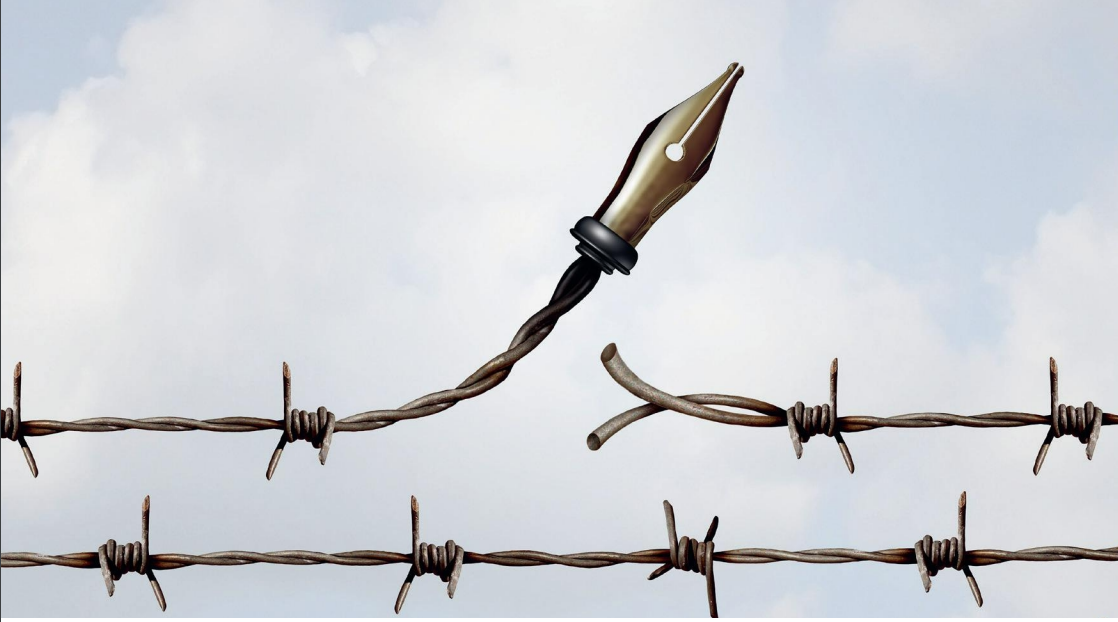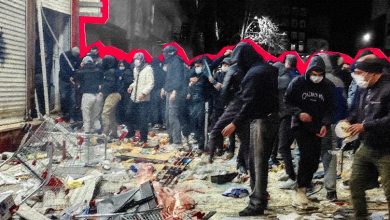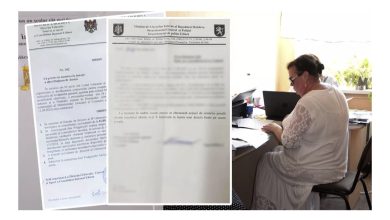Warfare, Artificial Intelligence, and Even Fraud. Journalists’ Challenges in 2023 in a New Report by the Council of Europe

In 2023, journalists from all over the globe were threatened or intimidated, detentions were taking place, and restrictive laws against the press were adopted. The media did its work in the context of the threats of artificial intelligence and the polarized political environment. The previous year was also marked by the wars in Ukraine, Karabakh, and the Gaza Strip. In Russia, the war was a pretext for restricting the state’s already rigorous control over the media. These are the statements from the annual assessment of press freedom in Europe, a report prepared by the partner organizations of the Safety of Journalists Platform of the Council of Europe.
According to the report published on Tuesday, March 5, in 2023, the platform’s partners launched 285 alerts regarding threats or serious attacks on press freedom in Europe, whereas in 2022, 289 alerts were registered. In spite of the fact that, in 2023, the number of killed journalists and incidents of street violence against them decreased, alerts on the platform demonstrate an increasing diversity of threats.
Wartime Journalism
Even in 2023, warfare remained an enormous danger for the press. In 2023, two journalists were killed (both by Russian attacks) while covering the war in Ukraine, and several journalists were injured. The number of deaths decreased compared to 13 cases registered during the previous year, but some other journalists were about to face death, one of them “went missing” under unknown circumstances, and some others who remained in or crossed the territories temporarily occupied by Russia were detained, imprisoned and, in some cases, subjected to ill-treatment. Russian military attacks also destroyed newsrooms’ headquarters, as was the case on December 30, when the Radio House in Kharkiv was damaged.
15% of all the alerts registered on the platform in 2023 concerned Russia. The country is currently undergoing a rapid deterioration in press freedom, according to the experts. Numerous journalists were detained, and some were sentenced to jail for “spreading fake information about the Russian army.” In addition, many exiled Russian journalists, as well as their family members remaining in Russia, were threatened or kept under surveillance. The survey results reveal that almost half of Russian journalists were threatened even in their new home countries.
In Belarus, in late 2023, at least 37 journalists were jailed for doing their work.
Threats, Abuse, and Fraud
Threats and intimidation, especially online, including death threats, have currently become part of a “new normal” for the media. These incidents have become so common that a large part of them is not even reported. In 2020, a UNESCO survey revealed that female journalists were particularly harassed online because of their gender. This sort of threats has a powerful discouraging impact, causing significant psychological damage, and it can also lead journalists to self-censorship, according to the report.
Journalists were also faced with verbal abuse and smear campaigns organized by politicians. Such attacks contribute to a hostile atmosphere in which law enforcement authorities, judges, and even public opinion may feel justified if journalists are treated as criminals, liars, or traitors.
The Pegasus scandal still resonates nowadays, even though it was publicly discussed in 2021. At that point, a network of journalists revealed that approximately 200 reporters around the globe had become targets of the Pegasus spyware. It was used for spying on journalists in Azerbaijan, France, Greece, Hungary, Spain, Turkey, and the United Kingdom. The governments’ responses to these revelations were insufficiently transparent, and even some new cases emerged in 2023. While Galina Timchenko, the head of Meduza, the Russian-language news website, was staying in Berlin in February 2023, her phone was allegedly infected by Pegasus. Journalists in Armenia were also faced with spyware during the conflict with Azerbaijan.
The SLAPP Burden
SLAPP, or strategic litigation against public participation, remains a large-scale issue, especially for investigative journalists. These lawsuits are intended for censoring, intimidating, and silencing journalists, burdening them with legal expenses until they cease their criticism or opposition.
Lawsuits are mostly based on alleged defamation or damage to reputation, and their impact is aggravated by the fact that defamation still remains a criminal offence in many countries, at least nominally.
Regardless of this already heavy burden on the media, in 2023, several governments introduced – or attempted introducing – more restrictive legislation against the media, thus limiting the space for independent journalism and dissent. For instance, in Hungary, a draft law on “protecting national sovereignty” could affect the media due to the fact that the Office for Protection of Sovereignty is ordered to monitor “attempts at disinformation.” In Croatia, the government attempted preventing the right of the media to criticize courts or to protect their sources; in the United Kingdom, it was suggested to expand the definition of “extremism,” which could result in restricting freedom of expression.
Between a Rock and a Hard Place
Editorial and economic independence still remains a major issue. According to the Centre for Media Pluralism and Media Freedom of the European University Institute, editorial independence from media owners was seriously threatened in 65% of the EU member states.
On the other hand, the media is also affected by artificial intelligence, which is able to transform the entire news ecosystem, and its impact is felt by the newsroom staff, and it also affects the writing process.
The report’s findings reveal a wide range of attacks against the press. The Safety of Journalists Platform publishes alerts on individual events or cases regarded as serious threats to press freedom. Soon, it will also list alerts described as “systemic”, i.e. those which have a systemic impact on the state of press freedom in a certain country.
Nevertheless, 2023 was also marked by a number of encouraging initiatives, according to the authors of the report: the “Journalists Matter” campaign launched by the Council of Europe, the anti-SLAPP recommendation drafted by the Council of Europe, and the European Media Freedom Act and the anti-SLAPP directive adopted by the EU.




